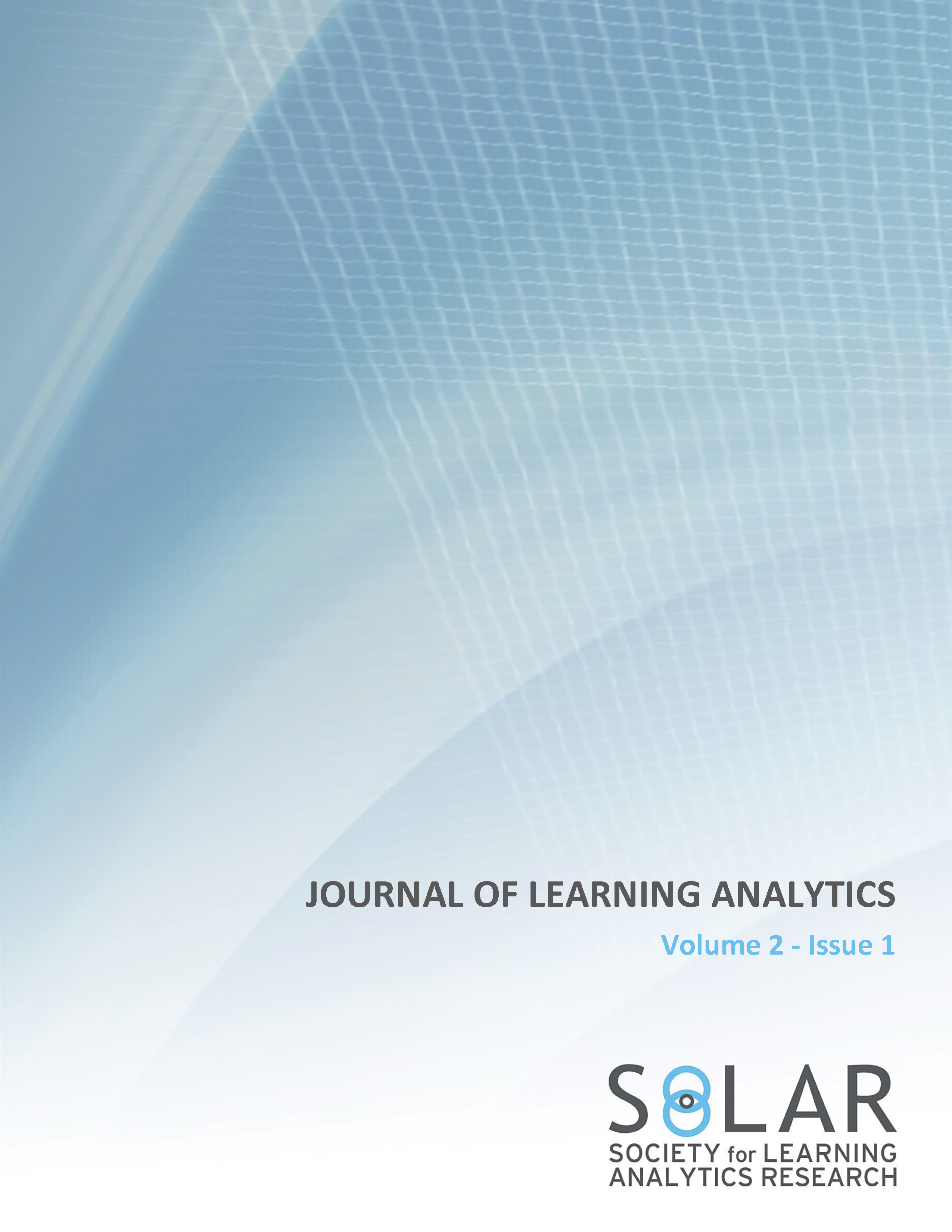Computer-Assisted Reading and Discovery for Student Generated Text in Massive Open Online Courses
DOI:
https://doi.org/10.18608/jla.2015.21.8Keywords:
Massive Open Online Courses, topic modelling, text analysis, computer‐assisted readingAbstract
Dealing with the vast quantities of text that students generate in Massive Open Online Courses (MOOCs) and other large-scale online learning environments is a daunting challenge. Computational tools are needed to help instructional teams uncover themes and patterns as students write in forums, assignments, and surveys. This paper introduces to the learning analytics community the Structural Topic Model, an approach to language processing that can 1) find syntactic patterns with semantic meaning in unstructured text, 2) identify variation in those patterns across covariates, and 3) uncover archetypal texts that exemplify the documents within a topical pattern. We show examples of computationally aided discovery and reading in three MOOC settings: mapping students’ self-reported motivations, identifying themes in discussion forums, and uncovering patterns of feedback in course evaluations.
Downloads
Published
How to Cite
Issue
Section
License
TEST


